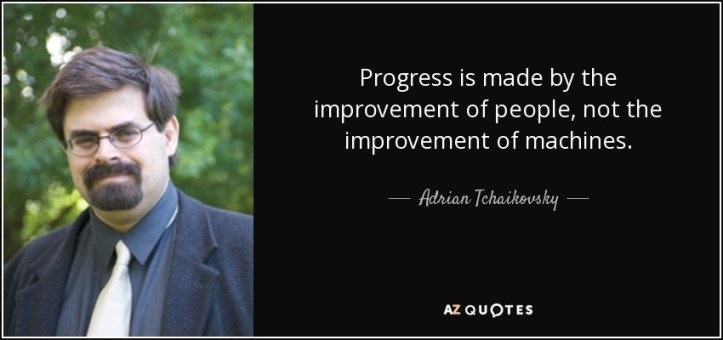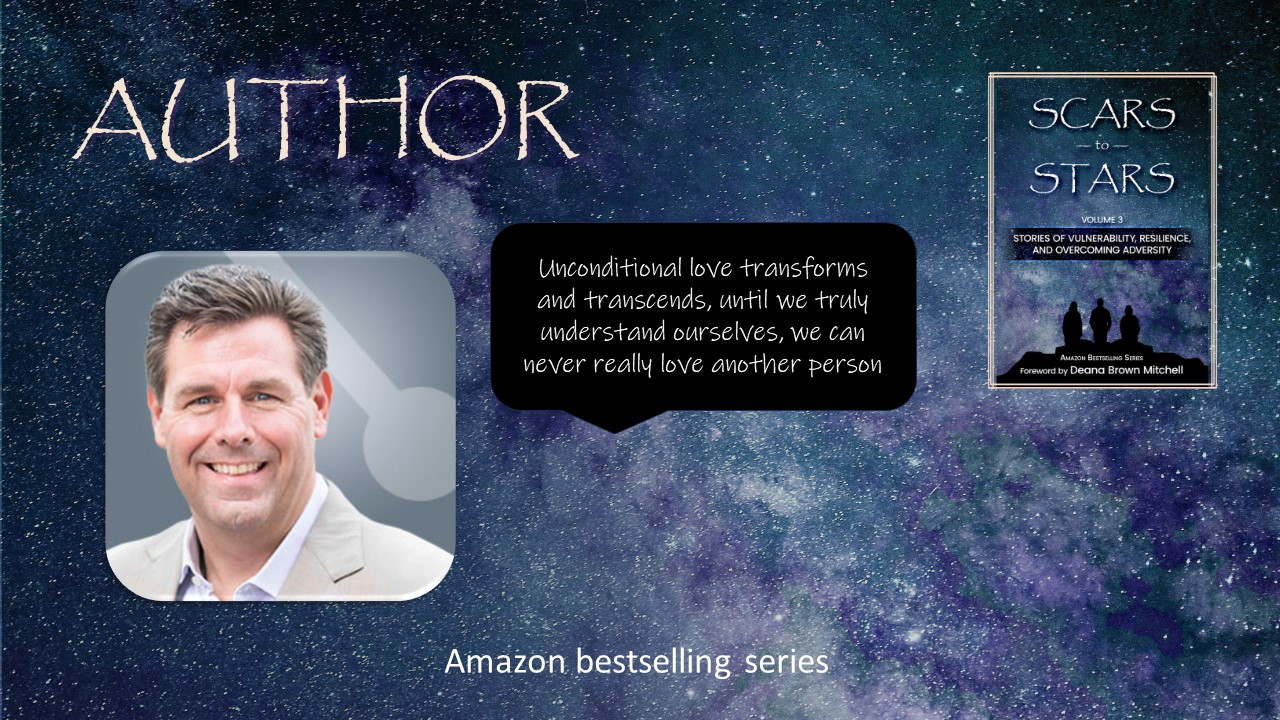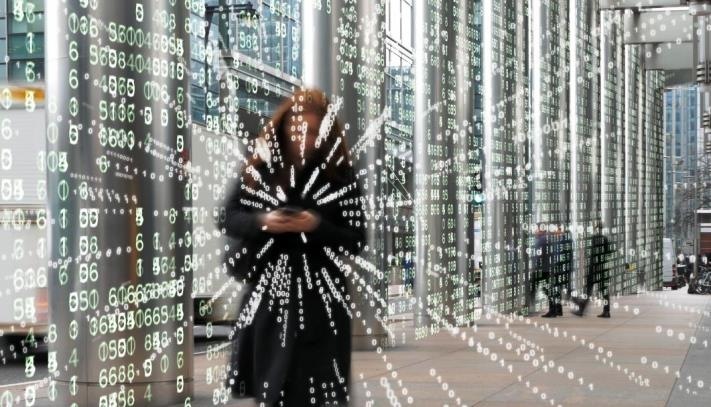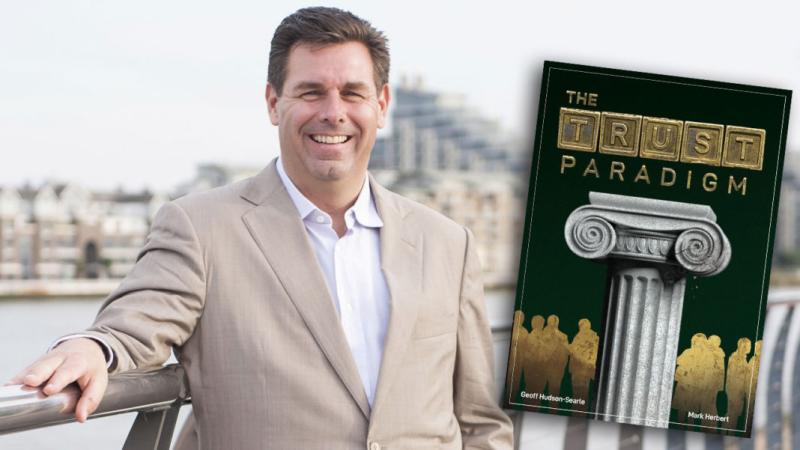Why H2H and a sense of purpose is still what real people (not machines) focus upon!

By now you’ve probably heard a lot about wearables, living services, the ‘Internet of Things‘, and smart materials. As designers working in these realms, we’ve begun to think about even weirder and wilder things, envisioning a future where evolved technology is embedded inside our digestive tracts, sense organs, blood vessels, and even our cells.
Let’s talk about a scourge of modern times. There is so much stuff to watch, read, listen to, buy, eat or learn about. The world is available at our fingertips at any moment. It feels glorious but also horribly, paralyzingly overwhelming.
Should I wade into Spotify’s sea of every song ever recorded or give up and listen to my downloaded copy of Beyonce’s “Crazy for Love” for the 47,000th time? Psychologist Barry Schwartz called this the “Paradox of choice” in his 2004 book of the same name. Like many ideas that come out of TED Talks, it is too simplistic to say more choices are counterproductive, but I think we’ve all experienced the feeling.
Naturally, technology companies have some ideas about how to help people discover things and select among the flood of options — and make money in the process. And even they are recognising the limits of technology in helping people stay informed and entertained.
To see the future, first we must understand the past. Humans have been interfacing with machines for thousands of years. We seem to be intrinsically built to desire this communion with the made world. This blending of the mechanical and biological has often been described as a “natural” evolutionary process by such great thinkers as Marshall McLuhan in the ’50s and more recently Kevin Kelly in his seminal book What Technology Wants. So by looking at the long timeline of computer design we can see waves of change and future ripples.
The effects of technological change on the global economic structure are creating immense transformations in the way companies and nations organise production, trade goods, invest capital, and develop new products and processes. Sophisticated information technologies permit instantaneous communication among the far-flung operations of global enterprises. New materials are revolutionising sectors as diverse as construction and communications. Advanced manufacturing technologies have altered long-standing patterns of productivity and employment. Improved air and sea transportation has greatly accelerated the worldwide flow of people and goods.
All this has both created and mandated greater interdependence among firms and nations. The rapid rate of innovation and the dynamics of technology flows mean that comparative advantage is short-lived. To maximise returns, arrangements such as transnational mergers and shared production agreements are sought to bring together partners with complementary interests and strengths. This permits both developed and developing countries to harness technology more efficiently, with the expectation of creating higher standards of living for all involved.
Rapid technological innovation and the proliferation of transnational organisations are driving the formation of a global economy that sometimes conflicts with nationalistic concerns about maintaining comparative advantage and competitiveness. It is indeed a time of transition for firms and governments alike.
In the markets of the United Kingdom and the United States, we are constantly seeing ‘flexibility’ and ‘change’ to our economies; this evidence is continuing with the ‘Gig Economy,’ the millennials and a new operating business economy. There are huge advantages to inflexibility and predictability, as continental Europeans appreciate. The evidence shows that continuous re-optimisation is not always the best route to building solid, sustainable foundations for business and relationships.

People also want to be trusted and respected themselves. This requires that they have some responsibility and autonomy. Most of us like to feel we are working well or helping others, because we could not expect to be respected otherwise. That is a key element in the motivation to work, the satisfaction of the professional norm. Yet in recent years employers have used more and more financial incentives to motivate people: Performance-related pay has been creeping in everywhere, including the public service.
With all of these considerations, are mainstream economists right or wrong in how they approach our social and economic problems? Partly right, partly wrong. Here is the good part: Each individual knows more about himself or herself than anyone else does. So, there are huge gains all round if we can freely exchange
goods and services with each other, including our labour. This is especially so where markets are large and well-informed and no one affects anyone else except through the process of voluntary exchange. Indeed, economists have correctly shown that if these conditions exist and contracts can be enforced and people can start sharing within a ‘shared economy,’ the outcome will be fully ‘efficient.’ In other words, everyone will be happy as is possible without someone else being less happy. This important claim helps to explain the extraordinary success of post-war capitalism in producing material advance.
Yet, why did this advance not guarantee a rise in personal happiness? The reason is that many of the most important things that touch us do not reach us through voluntary exchange. Nor have our tastes, expectations and norms remained unchanged, and these too affect our happiness.
Values in people can also change. In the last 50 years we have become increasingly independent and individualistic. We are ever more influenced by the Internet and versions of the ‘survival of the fittest;’ Charles Darwin said, ‘It is not the strongest of the species that survives, nor the most intelligent that survives. It is the one that is most adaptable to change.’ Describing ‘the invisible hand,’ Adam Smith said: ‘The great source of both the misery and disorders of human life, seems to arise from over-rating the difference between one permanent situation and another. Avarice over-rates the difference between poverty and riches: ambition, that between a private and a public station: vain-glory, that between obscurity and extensive reputation.
The person under the influence of any of those extravagant passions, is not only miserable in his actual situation, but is often disposed to disturb the peace of society, in order to arrive at that which he so foolishly admires. The slightest observation, however, might satisfy him, that, in all the ordinary situations of human life, a well-disposed mind may be equally calm, equally cheerful, and equally contented. Some of those situations may, no doubt, deserve to be preferred to others: but none of them can deserve to be pursued with that passionate ardour which drives us to violate the rules either of prudence or of justice; or to corrupt the future tranquillity of our minds, either by shame from the remembrance of our own folly, or by remorse from the horror of our own injustice.’
My final thought in the matter is that the answer to technological overload is not less technology but more humanity.
Digital transformation, solving problems with technology, exponential growth through technology, the integration of humans/machines, Artificial Intelligence, Internet of Things etc. Like it or not, there is no way out, technology has taken over already: I lived without a Smartphone for a few weeks to find out that you soon get excluded from communities, groups, discussions and business.

The problem is not development of new technology, this is nothing new for humanity. The problem is the speed and the major impact it creates for us. It is paradoxical, but humans have the capacity to create innovation and technology with which, at the same time, they have problems keeping up with, technically, emotionally and as a society. We are used to slow, incremental change. Only few people can keep up with the speed and nature of change, most of us get anxious and try to row backwards.
The most important things for our survival are not digital: air, water, food, clothes, emotions, the warmth of a human body next to us. Spending time with people living in a strong connection with and in and from nature was eye opening: we do not live in and with the nature, we are a part of nature, fully integrated with it.
We should ask: “If technology was supposed to make our lives easier and better, why is everybody so exhausted?”. “How can we stay present and awake in a world of distraction and consumption?”
My belief is that a society cannot flourish without some sense of shared purpose. The current pursuit of self-realisation will not work. If your sole duty is to achieve the best for yourself, life becomes just too stressful and too isolated and lonely, and you will be set up to fail. Instead, you need to feel you exist for something larger, and that very thought takes off some of the pressure.
We desperately need a concept of a common purpose, a common vision and a sense of working together to achieve the one overall goal. Human happiness comes from the outside and from within. The two are not in contradiction. The secret is compassion towards oneself and others, and the principle of the greatest happiness is essentially the expression that can all share connections. Perhaps these are the cornerstones of our future culture.
I believe now is the moment to define our terms. Technology is fast, and fast is getting faster, fast is busy, controlling, aggressive, hurried, analytical, stressed, superficial, impatient, active, quantity-over-quality. Slow is the opposite: calm, careful, receptive, still, intuitive, unhurried, patient, reflective, quality-over-quantity. It is about making real and meaningful connections – with people not machines, culture, work, food, everything.
A great quote by Gwyneth Paltrow, she once said:
‘My life is good because I am not passive about it. I invest in what is real. Like real people, to do real things, for the real me.’
"""
Articles from Geoff Hudson-Searle
View blog
It was with real Joy that we celebrated the launch of Scars to Stars volume 3. · Scars to Stars™ is ...

In January 2019, I wrote a blog ‘Are we too busy to connect to real people? – this blog had more sig ...

A recent publication by Business Mondays, published a recent interview on Geoff Hudson-Searle, that ...
Related professionals
You may be interested in these jobs
-
CNC Setter/Operator
Found in: Jooble UK O C2 - 5 days ago
Jackie Kerr Recruitment Tewkesbury, Gloucestershire, United KingdomCNC Miller · Our long standing client are currently recruiting for a CNC Miller to join their busy production team · CNC Miller Roles and Responsibilities: · Setting and operating CNC milling machines · The ideal CNC Miller will: · Experienced in the setting and operating of CNC ...
-
Data Engineer
Found in: Talent UK C2 - 6 days ago
Kody London, United Kingdom Full timeKody, a fast-growing Fintech specialising in bringing online payments and better financial services to brick and mortar businesses, is seeking a talented Data Engineer to join their dynamic team. · In this role, you will be responsible for developing, constructing, and maintainin ...
-
Associate Dentist
Found in: Talent UK C2 - 4 days ago
Medmatch Crowborough, United KingdomA Dental Practice known for its amazing services has let us know about a new Associate Dentist role that has become available in Crowborough · This practice is looking for a candidate that prides in providing the most brilliant service; whilst making sure that Patients leave with ...


Comments
Geoff Hudson-Searle
6 years ago #14
:-)
Jerry Fletcher
6 years ago #13
Geoff Hudson-Searle
6 years ago #12
Jerry Fletcher
6 years ago #11
Geoff Hudson-Searle
6 years ago #10
Change or evolution Jerry Fletcher? you remind me of one of Darwin's finest set of words, 'it is not the strongest of species that will survive, it is the one which is more adaptable for change'. Collective focus is always going to be a challenge, we are individual, complex, constantly subjective in our thinking, mindsets and approaches to life, however, with all this said, you may resinate with the fact that is now widely accepted that eusocial insect colonies ants, bees, wasps, and termites have collective minds, with members of the colony acting more like neurons than decision-making units in their own right. For example, a critical stage in the life of a honeybee colony is when it fissions and the swarm that leaves must find a new nest cavity. Research by Thomas Seeley and his associates shows that the swarm behaves like a discerning human house hunter, scouting the available options and evaluating them according to multiple criteria. Yet, most scouts visit only one cavity and have no basis for comparison. Instead, the comparison is made by a social process that takes place on the surface of the swarm, which is remarkably similar to the interactions among neurons that take place when we make decisions. After all, what is a multi-cellular organism but an elaborately organized society of cells, so, is collective focus possible within humans cells, based upon these findings, I believe so, your thoughts?
Liesbeth Leysen, MSc.
6 years ago #9
connection is what we all need, indeed Geoff Hudson-Searle that is the key to thriving from the inside out
Geoff Hudson-Searle
6 years ago #8
Thank you Debasish Majumder for your wonderul comments, have a wonderful weekend!
Geoff Hudson-Searle
6 years ago #7
Thank you fpr your comments, yes, completley stress is leading to unprecedented health problems. “Stop the world, I want to get off” is a feeling we all have sometimes. Why is this happening? What is wrong? What are we searching for? The one thing that is common to all these trends is connection. We are searching for connection. We want connection to business, our people – ourselves, our family, our community, our friends, – to food, to home, and to life. We want connection to all that it means to live – we want to live a connected life. This desire for connectedness is not new. Traditionally, in times past, our lives were connected. Most traditional cultures still have these connections. Cultures with connection, these people are connected to their culture, to people, to home and to their lives. Our fast paced life has weakened these connections. Technological advances have meant that the work we do is different from work in the past and it is less connected to living and life than it has been in the past. We all need a purpose, otherwise what is the point in life.....
Geoff Hudson-Searle
6 years ago #6
Great to hear from you Randall Burns and thank you most kindly for your generous comments. I completley agree, we all need more humanity away from the technology treadmill....In the last 150 years, however, the human relationship with time has radically changed. Some say the problems started earlier, with the development of agriculture or writing, but it was really the Industrial Revolution and the rise of the Machine that put humans in thrall to mechanical processes and machine time. And the recent exponential speeding up into Cybertime has accelerated the process still further. Industrial time was bad enough but Cybertime is changing the force of game play. And I believe that’s how many modern people feel completely frazzled and out of synch with our deepest selves. The results of this disconnection from nature and nature’s pace show up in therapists’ and doctors’ offices every day. Living under unnatural time pressures causes a myriad of psychological, social and physical ailments. Delinked from the natural rhythms of our bodies and the rest of the planet, we struggle with diminishing success to adapt to the strange mechanical and disembodied world we have created. It all underscores a vital point: While our world has always experienced change, the rate of change is speeding up. Many historians, sociologists and journalists have expressed concern in recent years about the rapid change in our society. They tell us that today’s world is changing at an accelerated rate, unlike anything past generations witnessed.
Jerry Fletcher
6 years ago #5
Debasish Majumder
6 years ago #4
Liesbeth Leysen, MSc.
6 years ago #3
Liesbeth Leysen, MSc.
6 years ago #2
Randall Burns
6 years ago #1